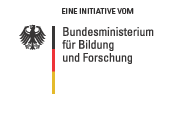Thomas Drescher: Parallel operations in the cell lab
-
 <ic:message key='Bild vergrößern' />
<ic:message key='Bild vergrößern' />
- Thomas Drescher, founder and board member at Jülich-based bioreactor system specialists DASGIP. Quelle: private
20.06.2012 -
There are many parallels in the life of Thomas Drescher, for example the parallel turns that he takes down the pistes of the Austrian Arlberg mountain. Drescher is a passionate skier and sailor, and lives not far from Jülich with his wife and two daughters. And when he’s not on the slopes, his company's business model depends on the parallelism of bioreactor systems. Born in Düsseldorf in 1960, Drescher is founder and board member of the Jülich-based bioreactor system specialists DASGIP. Drescher studied engineering – and gained his PhD – at the Rheinisch-Westfälische Technische Hochschule Aachen (RWTH). There, he got to know Matthias Arnold and Falk Schneider. "Since that time we have been friends and in league as entrepreneurs," says Thomas Drescher. In 1991, the engineering graduates and housemates also became company founders. The first letters of the surnames of the founding trio makes up the first part of the company name.
Today, the company in Jülich has 70 employees on its books. The specialist provider of parallel bioreactor systems of volumes of up to five litres and corresponding software solutions has a US branch in Shrewsbury, and in 2011 posted turnover of 13 million euros. The DASGIP products – used in the laboratory to optimise cellular expression systems – are in demand with pharmaceutical manufacturers and biotechnology companies around the world.
From IT to biotechnology
The company began life as an IT firm. "A few years later we took a side step side into biotechnology," remembers Drescher. At the time, the engineers were working with Jülich researcher Christian Wandrey, who commissioned DASGIP to develop software for computer-controlled microbial feeders. "The subject really caught our attention," says Drescher. What is more, the project had a pleasing side effect: The prototype was leased to Bayer AG, which guaranteed the makers not only a great deal of feedback from industrial users, but also a monthly rent of 10,000 Deutschmarks. "We invested the money in the development of a wellness centre for microorganisms and cell cultures," says Drescher. Thereby, the engineers emphasised the deployment of the most modern microelectronics and software techniques. And of course, an emphasis was also placed on parallelism. 4, 8, 12 or 16 bioreactors can be connected together and controlled and monitored with software tools. The interest in the small reactors on the side of the pharma- and biotech industry has risen markedly in the last seven years. For Drescher, the DASGIP devices are also making their own contribution on the path towards personalised medicine: "I don’t need 250-litre bioreactors for the autologous medication of patients; I need units for 3 to 4 litres," he says.
More on this subject on biotechnologie.de |
| News: Biotechnica 2011: Expectations fulfilled |
Expansion as Eppendorf subsidiary
Drescher is responsible for finance, sales and administration at DASGIP. His business model appears to be working; in January 2012, the laboratory suppliers Eppendorf acquired the company wholesale, although the financial details remain a secret. And so today, DASGIP finds itself a part of the 2600 employee-strong corporate group, with Eppendorf CEO Dirk Ehlers at the top. "All in all, that feels good," says Drescher, "and now we can really step on the gas with our growth path". For the founding team it was crucial that they would remain active as entrepreneurs also after the sale. "Eppendorf gives us this flexibility," he emphasises. The Jülich site is set to grow even further; just last year, the headquarters were expanded with an additional production hall. "And yet it will also be different under the new Eppendorf umbrella," comments Drescher. Above all, the new parent company will be giving a boost to their efforts to conquer the Asian markets. To date, DASGIP has concentrated its energy on Europe and North America. At this time, Drescher and his team are working towards the Achema trade fair in Frankfurt in June, where he will present the first jointly developed product – a single-use mini-bioreactor.
Author: Philipp Graf


